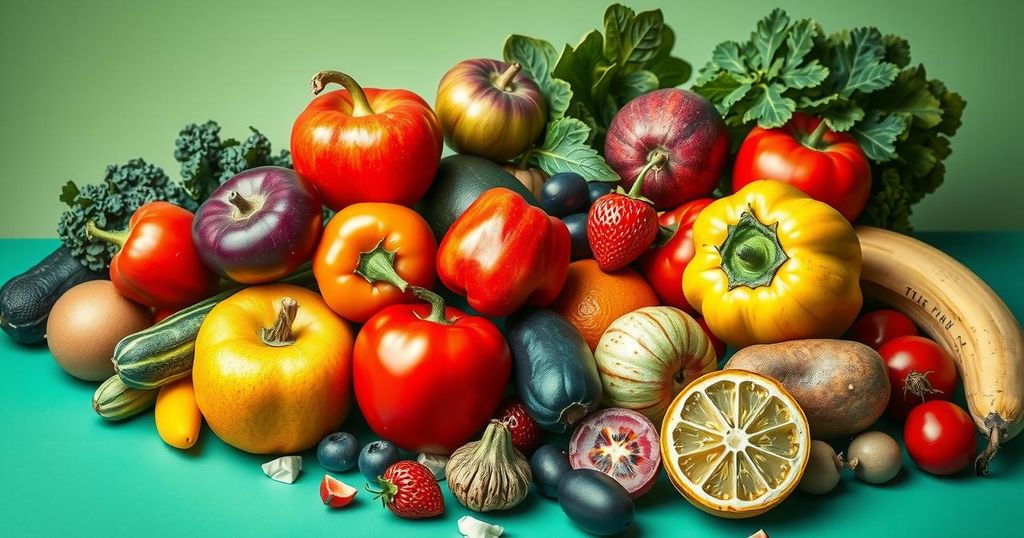COP30, hosted by Brazil, highlights the essential need for food systems in climate negotiations. Despite their significant role in driving deforestation and emissions, food systems have been overlooked, risking the effectiveness of climate agreements and initiatives. Brazil’s proactive measures demonstrate the potential for food system transformation, which is vital for ecological and economic sustainability. COP30 requires actionable commitments to support family farmers and enhance sustainable agricultural practices.
Food systems are crucial yet absent from the agenda of COP30, hosted by Brazil, a significant country in combating hunger and home to the Amazon rainforest. This summit is pivotal as it focuses on the climate-nature intersection, shaping future policies for the rainforest and its communities. However, food systems, which serve as a primary driver of deforestation and contribute approximately one-third of global emissions, have not been prioritized. Ignoring this aspect could diminish Brazil’s leadership and hinder vital forest protection initiatives.
The Intergovernmental Panel on Climate Change has clearly indicated that the existing food systems, which often favor large corporations, negatively impact food security and contribute to climate crises. The agricultural sector is responsible for 30% of anthropogenic emissions and up to 80% of global tropical deforestation, making the connection between agriculture and climate crises untenable. With effective mechanisms like agroforestry and sustainable farming practices, agriculture could potentially reduce emissions and help mitigate warming.
Brazil is actively addressing food-related challenges through initiatives such as the Global Alliance Against Hunger and Poverty and the Alliance of Champions for Food Systems Transformation. Despite these efforts, if COP30 neglects the role of food and agriculture in deforestation, it will fail to confront the root of the problem. Family farmers, vital to food production and security, require greater financial and political support to adapt to climatic changes effectively.
In 2021-22, only a small percentage of climate financing for agriculture targeted small-scale farmers. However, Brazil’s National Plan for Agroecology and Organic Production aims to bolster resilience among family farmers. The COP30 president has underscored the need for actionable commitments, emphasizing that discussions must lead to on-the-ground changes within food systems.
Moving forward, the priority is to utilize the Global Stocktake to create actionable plans for transforming food systems. Concrete measures must be established to stop forest degradation by 2030 and address specific deforestation causes, including agriculture. Countries are expected to revamp their next action plans by September 2025 to include clearly defined targets and necessary funds.
It is vital for COP30 to bridge the climate finance gap, with Brazil advocating for developed nations to assist in transitioning to sustainable agriculture. A roadmap aimed at mobilizing significant financial resources for these efforts is critical, as well as ensuring that climate finance aligns with fair practices to protect ecosystems and assist local farmers.
Given today’s political tensions and cuts in international aid, recognition of the global sustainable food system’s importance has never been more pressing. A transformative food system that mitigates malnutrition while enhancing productivity and environmental protection could yield substantial economic benefits. Brazil’s expertise places it at the forefront of the potential movement towards a food system revolution at COP30, an essential step for both ecological and economic stability.
In conclusion, food systems, integral to tackling climate change and promoting food security, must be recognized as crucial components of the COP30 agenda. Brazil’s initiatives indicate progress, yet without a comprehensive approach that includes the role of agriculture in climate strategies, significant opportunities will be missed. Leaders must prioritize sustainable food systems to ensure both economic and ecological stability for the future.
Original Source: www.climatechangenews.com




